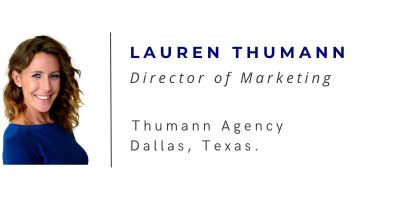
Operating a commercial truck in Texas involves navigating a complex web of state and federal regulations to ensure your business remains compliant and protected. From securing the right insurance coverage to filing proof with the Texas Department of Motor Vehicles (TxDMV) or Federal Motor Carrier Safety Administration (FMCSA), the requirements can overwhelm owner-operators and small trucking businesses. Non-compliance risks fines, suspended operations, or financial losses from uncovered accidents.
This guide breaks down Texas Commercial Truck Insurance Requirements in detail, covering minimum coverage, filings, and specialized needs for owner-operators and hazardous materials carriers. With a focus on Texas-specific rules, it equips you with the knowledge to safeguard your business. And if you also need broader business insurance in Dallas, TX for your office, depot, or staff, our team can help you compare options and bundle coverage.
Understanding Texas Commercial Truck Insurance Requirements
Commercial truck insurance is a legal mandate in Texas, designed to protect drivers, businesses, and the public from the financial fallout of accidents. Whether you operate a single box truck in Dallas or a fleet crossing state lines, you must meet specific regulations. The TxDMV governs intrastate carriers (those operating solely within Texas), while the FMCSA oversees interstate operations. Compliance often requires a USDOT Number for federal tracking and an MC Number for Motor Carrier Authority, particularly for interstate haulers. An insurance certificate serves as proof of financial responsibility, ensuring coverage for damages, injuries, or cargo losses.
The TxDMV requires all commercial vehicles to carry liability insurance, with additional filings for intrastate carriers. The FMCSA sets higher standards for interstate trucks, factoring in weight and cargo type. For owner-operators, balancing cost and coverage is a key challenge, as premiums can strain budgets. Small businesses must avoid overpaying for unnecessary policies while meeting mandatory commercial truck insurance rules. Regulations also vary by truck type (e.g., semi-trucks vs. non-CDL box trucks) and operating radius. Understanding these requirements helps you avoid penalties and focus on your operations. This section explores the regulatory framework, setting the stage for detailed coverage and filing explanations.
Get a Commercial Truck Insurance Quote to safeguard your business today.
Minimum Coverage Requirements in Texas
Texas law mandates minimum liability insurance for all commercial truck drivers to cover bodily injury and property damage. These baselines apply to all vehicles, with stricter rules for commercial operations. The TxDMV outlines the following for all drivers:
-
Bodily injury (per person): $30,000 per injured individual.
-
Bodily injury (total per accident): $60,000 for all injuries in one incident.
-
Property damage: $25,000 per accident.
Intrastate carriers face additional requirements under the Texas Administrative Code (Title 43, Chapter 218), which mandates a minimum of $500,000 in combined single limit (CSL) coverage. This ensures commercial truck insurance minimum coverage for damages caused by intrastate trucks. Interstate carriers, regulated by the FMCSA, must meet higher federal commercial truck insurance requirements based on truck weight and cargo:
-
Non-hazardous cargo (>10,001 lbs): $750,000.
-
Oil or hopper-type cargo: $1 million.
-
Hazardous materials: $5 million.
Coverage needs hinge on several factors. Truck weight classes (e.g., 26,000 lbs or less vs. over 26,000 lbs) determine baseline liability. Operating radius affects risk; a Dallas-based truck hauling locally faces different exposures than one traveling interstate. Cargo type also plays a role—non-hazardous goods require less coverage than hazardous materials. For example, a Dallas owner-operator with a 15,000-lb box truck needs $500,000 intrastate coverage, while an interstate semi-truck hauling chemicals requires $5 million. Non-compliance can lead to TxDMV audits, FMCSA fines, or suspended operating authority. Regular policy reviews ensure your coverage aligns with your operation’s scale and risks.
Key Commercial Truck Insurance Coverage Types
Meeting truck insurance legal requirements involves selecting the right mix of mandatory and optional coverages. Each type addresses specific risks, from accident liability to cargo damage. Below is a detailed look at essential coverages for Texas commercial trucks:
-
Primary Liability Coverage: Mandated by law, this covers bodily injury and property damage caused by your truck in an accident. It’s the cornerstone of commercial vehicle insurance compliance and meets TxDMV and FMCSA minimums.
-
Cargo Insurance: Protects goods during transport against theft, damage, or loss. It’s vital for haulers of high-value or perishable items, like electronics or produce.
-
Bobtail Insurance: Covers owner-operators when driving without a trailer, such as after dropping off a load. This is critical for independent drivers not under a fleet’s policy.
-
Non-Trucking Liability: Protects when using your truck for personal purposes, like driving home. It’s a must for owner-operators to avoid gaps in coverage.
-
Physical Damage Coverage: Pays for repairs or replacement if your truck is damaged by accidents, theft, or natural disasters. It’s optional but recommended for high-value vehicles.
-
General Liability: Covers business risks beyond driving, such as property damage at a client’s warehouse. It’s ideal for trucking companies with broader exposures. For many trucking companies, general liability is just one part of a larger protection plan that also includes business insurance in Dallas for buildings, equipment, and employees.
Each coverage serves a purpose. A Dallas owner-operator might prioritize bobtail and cargo insurance to protect their livelihood, while a fleet hauling hazardous materials needs robust primary liability. Coverage costs vary by truck type, driving history, and operating radius. For instance, insuring a non-CDL box truck in Dallas is cheaper than a semi-truck crossing state lines. Regular risk assessments help you tailor policies to your needs, avoiding overpayment.
Learn more about Costs of Commercial Truck Insurance on our Average Costs of Commercial Truck Insurance in Texas.
Navigating TxDMV and FMCSA Filings
Compliance extends beyond purchasing insurance; you must file proof with regulatory bodies. The TxDMV and FMCSA require specific forms to verify your coverage, ensuring commercial trucking insurance standards are met. Below are the key filings:
-
MCS-90 Form: Interstate carriers need this to prove FMCSA-required liability coverage. It guarantees payment for damages, even if your policy lapses, protecting the public. Your insurer files it with the FMCSA.
-
BMC-91X Filing: Another FMCSA requirement, this confirms your insurance meets federal liability standards. It’s typically submitted alongside the MCS-90 for interstate operations.
-
Texas DMV Insurance Filings: Intrastate carriers must provide an insurance certificate to the TxDMV, proving $500,000 CSL coverage. This must be kept in your vehicle and office for inspections.
Filing mistakes can result in penalties. For example, an incorrect MCS-90 submission might lead to a $1,000 FMCSA fine or suspended authority. Owner-operators often face challenges with filing costs and deadlines, especially when securing a Motor Carrier Authority. The process involves obtaining a USDOT Number, MC Number, and ensuring all filings are current. Texas regulations require intrastate carriers to renew insurance certificates annually, while FMCSA mandates periodic updates for interstate carriers.
Inspections are common, especially in high-traffic areas like Dallas. Roadside checks by TxDMV or FMCSA officials verify insurance certificates and filings. Non-compliance can halt operations, costing thousands in downtime. Keeping digital and physical copies of your Texas DMV Insurance Filings in your truck and office streamlines inspections. For instance, a Dallas owner-operator avoided a $500 fine by presenting a valid MCS-90 during a routine check. Understanding these requirements ensures your business stays compliant and operational.
Get a Commercial Truck Insurance Quote to safeguard your business today.
Special Considerations for Owner-Operators and Hazardous Materials
Owner-operators and carriers of hazardous materials face distinct insurance challenges. Owner-operators, as independent drivers, bear full responsibility for insurance requirements for commercial truck drivers. Their needs include:
-
Bobtail and Non-Trucking Liability: These cover off-duty driving, such as returning home after a delivery. Without them, owner-operators risk personal liability for accidents.
-
Motor Carrier Authority: Requires a USDOT Number, MC Number, and MCS-90 filing. The process can cost $300-$500 in fees, plus insurance premiums.
Hazardous materials carriers, like those transporting chemicals or explosives, face stricter commercial truck insurance for hazardous materials rules. The FMCSA mandates $5 million in liability coverage due to the high risk of environmental or public harm. These trucks undergo frequent inspections, and premiums can be double those for non-hazardous cargo. In Dallas, local factors like heavy traffic on I-35 or strict city ordinances on hazardous loads add complexity.
Owner-operators often struggle with high premiums, especially for commercial truck insurance for interstate travel. For example, a Dallas-based driver hauling across state lines might pay $10,000 annually for $1 million in coverage, compared to $5,000 for intrastate work. Hazardous materials carriers face even steeper costs, often $20,000 or more. Tailored policies can reduce expenses. For instance, bundling bobtail and cargo insurance saved a Dallas owner-operator $1,800 yearly. Texas-specific risks, like urban congestion or severe weather, also influence coverage needs. Understanding these factors helps you secure cost-effective, compliant insurance.
Learn more about commercial truck insurance on our Commercial Truck Insurance: A Comprehensive Guide for Businesses in Dallas, Texas.
Thumann Agency: Your Trusted Partner for Commercial Truck Insurance
Navigating Texas commercial truck insurance requirements demands expertise, especially for owner-operators and small businesses. Thumann Agency, based in Dallas since 1996, brings decades of experience to simplify the process. Our licensed agents understand Texas-specific regulations, from TxDMV filings to FMCSA standards. We partner with over 80 insurers to secure tailored, cost-effective coverage, ensuring compliance without breaking your budget.
Our real-world experience sets us apart. For example, we helped a Dallas owner-operator secure $750,000 in interstate coverage, saving them $2,000 annually through competitive quotes. Clients praise our clear guidance: “Thumann Agency explained my MCS-90 requirements in plain terms and found me affordable cargo insurance,” says Maria, a local hauler. Our Dallas roots mean we know local risks, like navigating I-35 or complying with city ordinances. Whether you need bobtail insurance or hazardous materials coverage, we prioritize your needs, delivering policies that protect your business and livelihood.
FAQs on Texas Commercial Truck Insurance
Below are answers to common questions about insurance requirements for semi-trucks and other commercial vehicles in Texas:
What is the minimum insurance for a commercial truck?
Texas requires $500,000 in combined single limit coverage for intrastate trucks (TxDMV). Interstate trucks need $750,000 to $5 million, depending on cargo and weight (FMCSA).
What kind of insurance do I need for a trucking company?
Your company needs primary liability, cargo, and general liability. Owner-operators may require bobtail or non-trucking liability to meet commercial truck insurance for hazardous materials standards.
What qualifies as a commercial vehicle?
A commercial vehicle is used for business, such as semi-trucks, box trucks, or vans over 10,001 lbs. Vehicles requiring a USDOT Number or hauling cargo for hire qualify.
What happens if a commercial vehicle doesn’t have insurance?
Non-compliance risks fines, suspended operating authority, or legal liability for damages. Uninsured accidents can lead to financial ruin for your business.
Is commercial vehicle insurance different from personal auto insurance?
Yes, commercial insurance offers higher liability limits and specialized coverages like cargo or bobtail, unlike personal policies that don’t meet Texas requirements.
Do I need commercial insurance for a non-CDL box truck?
If used for business, a non-CDL box truck requires commercial insurance to comply with TxDMV standards, ensuring commercial truck insurance for interstate travel coverage.
Conclusion: Partner with Thumann Agency for Your Texas Truck Insurance
Texas truckers face unique challenges, from navigating I-35 traffic to meeting FMCSA and Texas Department of Insurance standards. Securing affordable, compliant Cheap commercial truck insurance quotes online is essential for motor carriers, owner-operators, and small businesses.
Since 1996, Thumann Agency has served Dallas and Texas with expertise, partnering with over 80 insurers to deliver tailored coverage. In addition to truck-specific coverage, we also help Texas carriers with business insurance in Dallas, TX – protecting your yard, office, equipment, and team under one coordinated program.
Our risk assessments and local knowledge help you avoid costly claims while saving on premiums. Take control of your insurance today-call 972.991.9100 for a free quote at Thumann Agency.
Last Updated: 11.15. 2025
Author: Lauren Thumann Director of Marketing.

Disclaimer: This page is for educational purposes only. Coverage details vary by provider. Contact us for a personalized quote.
